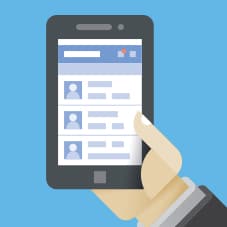When you factor together the number of appointment-based businesses and the average no-show rate across all industries, I estimate the American economy loses at least $66 billion each year due to missed appointments. You’ve likely seen how no-shows can hurt your firm. So how can you make sure people stick to their appointments?
While ending no-shows entirely is unlikely, there are tactics you can use to increase the likelihood your client will show up — and make sure they show up on time. The key? Automate. An effective automated messaging strategy can cut the no-show rate by 50 to 75 percent. Doctors, schools, and local businesses like hair salons use automated messages and phone calls, and it can be good for law firms, too. This is especially true for consumer law firms specializing in areas such as bankruptcy, personal injury, divorce, workers’ comp and immigration.
Tips for Using Automated Reminder Systems
When devising an appointment messaging strategy using SMS (short message service), phone calls and email, keep the following things in mind.
- People forget. The main reason clients miss appointments and court dates is that they simply forget or are misinformed about the appointment.
- Two is better than one. The best way to keep clients informed about appointments is to send them an automated message one or two days before the appointment or court date, asking for confirmation. Then, send another message the morning of the appointment telling the client where to be and what to bring. Of course, the content of the messages can and should vary depending on the client, the type of appointment and the location. Regardless of content, though, you should always include the location.
- Switch it up. To make sure reminders get through, send more than one type of message. I usually recommend a combination of SMS and email, or SMS and phone calls. One study found that SMS messages are read 97 percent of the time, because they are short and easy to access. SMS may have a slight edge when it comes to responses, too. Last fall we sampled 178,000 random appointment reminder messages sent on behalf of clients and found that 30 percent of SMS messages were replied to, while calls and emails were replied to 23 percent and 12 percent of the time, respectively.
- Garbage in, garbage out. If your system is too complex — for example, requiring staff to enter appointments into both case management systems and appointment reminder systems — you open the door to errors and inconsistencies. You want fewer headaches, not more, so set up a system that requires as few entries (and corrections) as possible.
You Got Bumped!
The second most common reason clients give for missing appointments is “something else came up.” While you can’t control work or life emergencies, you can try to increase the perceived importance of the client’s appointment with you. For instance, explaining why the appointment is important, “befriending” them by establishing a two-way communication channel, and personalizing the message are all ways to increase the likelihood they will make the appointment a priority.
Frank Cort, the founder of Apptoto, a cloud-based, automated appointment messaging service, is a serial entrepreneur and programmer who identifies with professionals trying to improve, manage and grow their business. Before Apptoto, Frank was at Yahoo via Xobni, an email data-mining software company acquired by Yahoo.
















